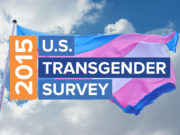The Endocrine Society updated their clinical practice guidelines for gender-affirming treatments on Wednesday.
The new guidelines titled “Endocrine Treatment of Gender-Dysphoric/Gender-Incongruent Persons: An Endocrine Society Clinical Practice Guideline,” are the first published by the Endocrine Society since 2009. Though they are now published online, the guidelines will be published in the November 2017 print version of the Journal of Clinical Endocrinology & Metabolism (JCEM).
The guidelines establish gender affirmation as a multidisciplinary treatment in which endocrinologists play an important role. They establish a hormone regimen that provides safe suppression of endogenous sex hormones while maintaining sex hormone levels within the normal range of a person’s affirmed gender. Most notable are the guidelines pertaining to adolescents. Hormone treatment is not recommended for prepubertal gender-dysphoric/gender-incongruent persons.
The Endocrine Society recommends treating gender-dysphoric/gender-incongruent adolescents who have entered puberty at Tanner Stage G2/B2 by suppressing incongruent hormones as they reach this stage. Most adolescents reach Tanner Stage G2/B2 by the age of 16. They also recognize that there may be compelling reasons to initiate sex hormone treatment prior to age 16, though there is minimal published experience in treating people prior to age 13.5 to 14. For the care of peripubertal youths and older adolescents, they recommend that an expert multidisciplinary team comprised of medical professionals and mental health professionals manage their treatment. The treating physician is required to confirm the criteria for treatment used by the referring mental health practitioner while collaborating with them in decisions about gender-affirming surgery in older adolescents.

For the treatment of adults they require the treating clinicians to collectively have expertise in transgender-specific diagnostic criteria, mental health, primary care, hormone treatment, and surgery, depending on the patient’s needs. When high doses of sex steroids are required to suppress endogenous sex steroids and/or in advanced age, clinicians may consider surgically removing natal gonads along with reducing sex steroid treatment. Clinicians are also advised to monitor patients for organ cancer when surgical removal is incomplete.
An appointed task force of nine experts, a methodologist, and a medical writer established the new Endocrine Society guidelines. They were developed using the Grading of Recommendations, Assessment, Development, and Evaluation approach to describe the strength of recommendations and the quality of evidence. Consensus was achieved through Endocrine Society committees, members, and cosponsoring organizations who reviewed and commented on preliminary drafts of the guidelines.
































